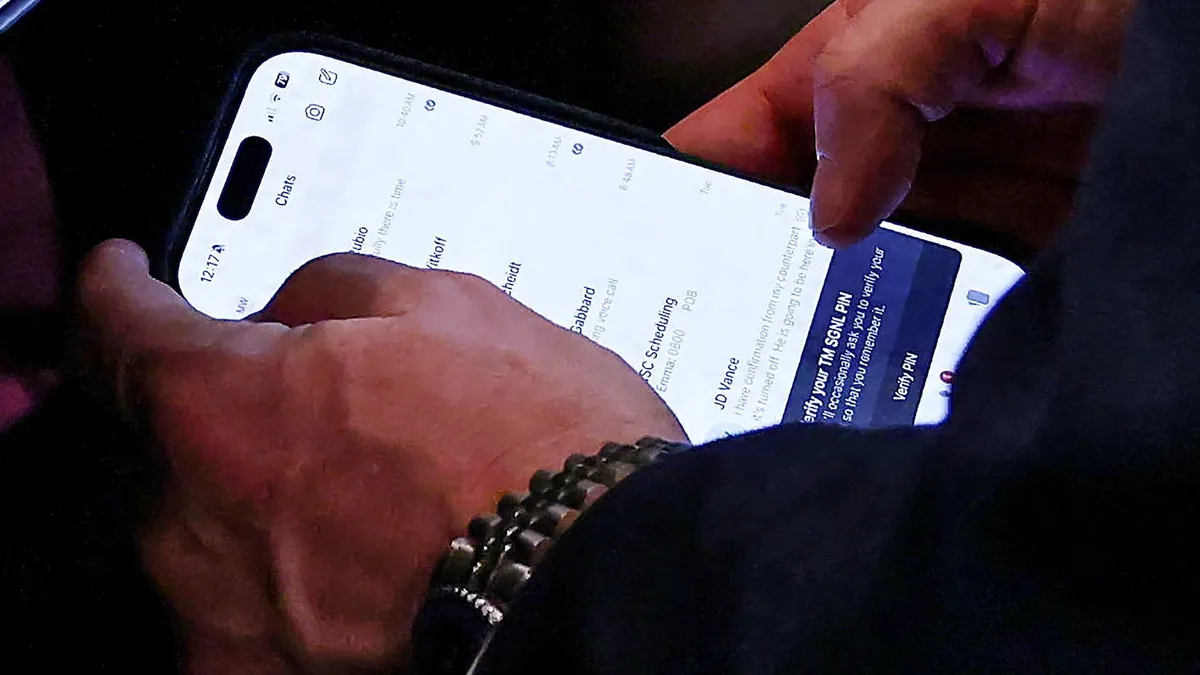
In a surprising turn of events, Mike Waltz, President Donald Trump's former national security adviser, was photographed using the Signal app during a Cabinet meeting on Wednesday. This incident occurred just a day before the President announced his decision to replace Waltz with Secretary of State Marco Rubio. The photograph, captured by a Reuters photographer, revealed that Waltz was texting several prominent figures, including Vice President JD Vance, Rubio, Director of National Intelligence Tulsi Gabbard, and Steve Witkoff, who serves as Trump's Middle East envoy.
In response to the controversy surrounding Waltz's use of Signal, White House Communications Director Steven Cheung came to his defense on Thursday afternoon. Cheung stated, “Signal is an approved app that is loaded onto our government phones. Thank you for your attention to this matter.” This statement aimed to clarify the administration’s stance on the use of the app amidst growing scrutiny.
Waltz has faced criticism in the past, notably in March, when he inadvertently invited journalist Jeffrey Goldberg from The Atlantic to a Signal group chat. This chat included other national security officials like Vance and Defense Secretary Pete Hegseth, who were discussing a U.S. attack on terrorists in Yemen. Following the incident, Waltz asserted that he was unaware of how Goldberg ended up in the group and emphasized that no sensitive information had been disclosed. Despite the backlash, President Trump defended Waltz, dismissing calls for his dismissal.
On Thursday, Trump announced plans to nominate Waltz as the new U.S. ambassador to the United Nations. Meanwhile, Secretary of State Marco Rubio will serve as the interim national security adviser, maintaining his current responsibilities. Although Trump has publicly supported Waltz, sources have indicated to ABC News that the President has become increasingly frustrated with him following the Signal controversy.
Despite the White House asserting that Signal is an approved communication tool, the Pentagon's internal watchdog has previously criticized the app's use by former officials. In 2021, they labeled it a potential breach of the department's records retention policies and an unauthorized channel for sensitive communications. Recently, DOD Acting Inspector General Steven Stebbins announced an investigation into Hegseth's use of Signal during the Yemen operation.
On Thursday, a U.S. official confirmed to ABC News that the Inspector General is also investigating a second Signal chat involving Hegseth, where he shared details regarding the timing of the attack with his wife, brother, and attorney. The Wall Street Journal first reported on this expanded investigation. The aim is to evaluate the compliance of the Secretary of Defense and other Department of Defense personnel with existing policies regarding the use of commercial messaging applications for official matters. Additionally, the review will assess adherence to classification and records retention requirements, as stated in an official announcement.
Republican leaders have actively blocked Democratic initiatives to investigate the Signal chat related to the Yemen attack within Congress. This obstruction highlights the ongoing political tensions surrounding the use of private messaging apps for official communications and raises questions about transparency and accountability in government operations.